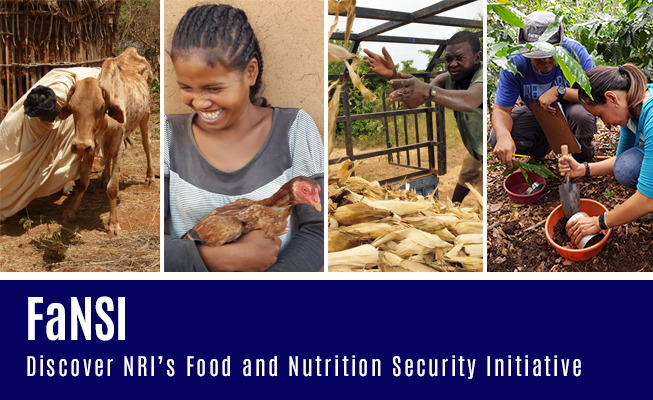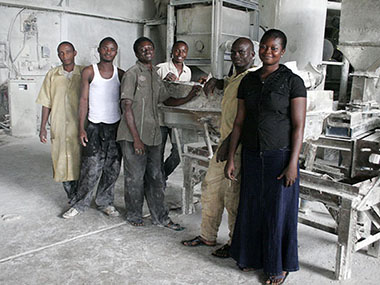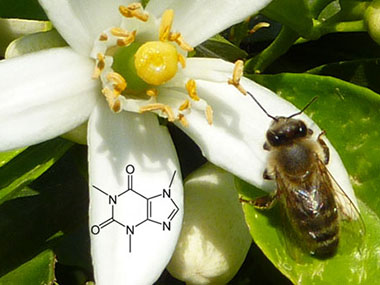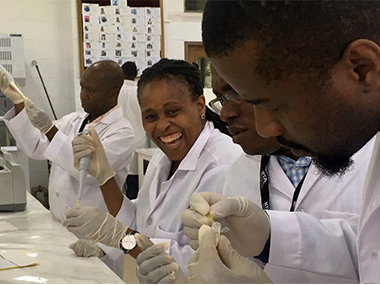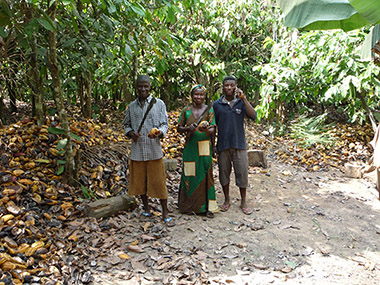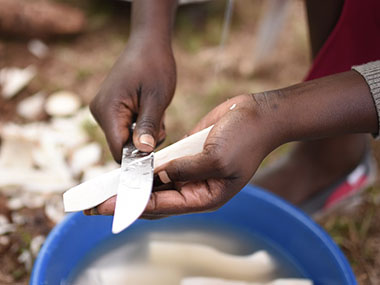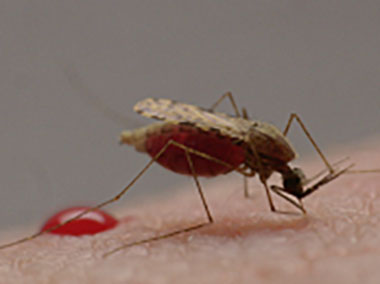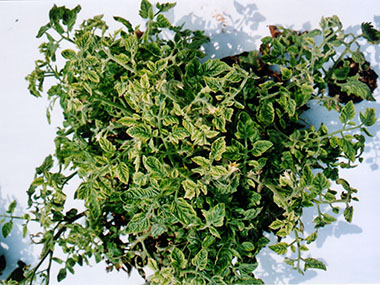Research
The Natural Resources Institute (NRI) of the University of Greenwich is a leader in natural resources research, promoting efficient management and use of renewable natural resources in support of sustainable livelihoods. Research is primarily focused on developing and emerging economies. NRI's presence and research partnerships in developing countries, and its training and capacity building programmes, provide the platform for the Institute to develop and disseminate key technologies and knowledge. This has resulted in substantial impact at farmer and community level, and has made significant contributions to the international research community. Much of the work also involves interaction with the developed world where it is equally applicable.
Our Research Groups report to two units of assesment, Agriculture, Food and Veterinary Sciences and Anthropology and Development Studies. Further information including group members, projects and publications can be found below.
Impact is central to everything NRI does. Below you can find examples of our Impact Case Studies.
An important constituency within all of our Research Groups are our Early Career Researchers (ECRs). We have an active ECR Network that aims to develop skills, promote inter-disciplinarity and foster a collegiate research environment for those at an early state in their research careers. The ECR Network’s agenda is set by the ECRs themselves and seeks to be inclusive and focussed on maximising career potential.
Our Research and Development work is also organised to address thematic challenges. Contact Professor Ben Bennett for more details.
Aquatic Biotechnology and Biology
We study and process algae for future food, for feed to improve farmed animal health and welfare, for biofuels and as a source of green chemicals and nutraceuticals. We investigate the impact of climate change and disease on aquatic species in natural and aquaculture settings.
Chemical Ecology and Plant Biochemistry
The Chemical Ecology Group works on the identification and use of naturally-produced chemicals for control of pests, particularly in the developing countries.
Centre for Society, Environment and Development
Our research addresses poverty and vulnerability, and how poor people themselves, governments, the private sector and civil society can help overcome them
Early Career Researchers’ Network - ECRN
The network allows ECRs to come together, to enhance their research and wider development skills in a dynamic and highly multidisciplinary working environment that strives for a vibrant and inclusive culture of research excellence.
Ecosystem Services
Climate change and biodiversity loss are two of the biggest global challenges in the coming decades, primarily due to their impacts on the provision of ecosystem services.
Food Systems
The Food Systems Research Group addresses challenges and opportunities relating to the spectrum of activities from food production to consumption.
Pest Behaviour
The work of the Pest Behaviour Group ranges from laboratory-based research to analyse the basic physiology and behaviour of pests and vectors through field-based studies of pest behaviour and ecology to translational research where knowledge of pest behaviour is used to develop innovative control technologies.

Chemical Ecology is the study of naturally occurring compounds that mediate the interactions of organisms with each other and with their surroundings. Understanding these interactions can lead to the discovery of novel methods for controlling pest and disease organisms and optimising the behaviour of beneficial insects and pollinators without harmful effects on the environment.
Our Group has an international reputation for fundamental and applied research in Chemical Ecology, established during more than 50 years of work, primarily in developing countries but also in the UK and mainland Europe. The Group has world renowned expertise in the isolation, identification, synthesis, formulation and applications of natural products from plants and animals.
These natural products include pheromones and other attractants for monitoring and control of crop and storage pests, host attractants for monitoring and control of disease vectors, chemicals responsible for resistance of crops to pests and pathogens and plant compounds that mediate the health, behaviour and well-being of pollinators.
The Group includes specialists in chemistry, entomology and plant biochemistry, and we work with a wide range of collaborating organisations and industrial partners in the UK, Europe and developing countries. Although focussed on providing solutions to problems in pest and disease management, members of the Group lecture and publish widely and are long-standing members of the international chemical ecology community.
- Exploitation of interspecific signals to deter oviposition by spotted-wing drosophila BBSRC BB/S005641/1 (2019-2022)
- Monitoring the canola flower midge with pheromones: Canola Agricultural Research Program (2020-2022)
- RODENTGATE Future rodent management for pig and poultry health ERA-NET (2021-2024)
- Novel trapping systems for monitoring and control of Hylobius abietis, Forestry and Land Scotland (2019-2021)
- Developing prototype Volatile Organic Compound sensor-based products for determining soil health on-farm, Innovate UK 31793 (2019-2022).
- Identification of the sex pheromone of Nesidiocoris tenuis, a damaging pest of commercial tomato AHDB/BBSRC (2019-2020)
- Heather Beetle Control, UoG Seedling Fund and UK Heather Trust (2020-2021)
- Are pollen sterols landscape limiting nutrients for bees in the UK NERC-UKRI NE/V021583/1 (2021-2024 PCS @Kew)
- Africa AgriFood Knowledge Transfer Partnership - Commercial opportunities for Croton megalocarpus (KTP1245) (2022-2023)
- Influence of diet on honeybee lipidome BBSRC-UKRI BB/T014210/1 PCS @Kew (2020-2023)
- Pyrethrum in Bloom: Agritech Catalyst 9 Innovate UK TS/V000934/1 (2020-2023)
- Farmer Research Network Assessments of Botanical Pesticides to Augment Above and Below Ground Ecosystem Services for Crop Resilience, McKnight Foundation. Collaborative Crops Research Program (Ref 20-034)
- Scoping innovations for improved strawberry pollination by commercial bumblebees using caffeine BBSRC-UKRI (BB/T003960/1) 2019
- Realising the potential of bioresources to mitigate development challenges in Ethiopia, EPSRC (EP/T024925/1) 2020
- Natural Pest Regulation in Orphan Crop Legumes in Africa (BBSRC-GCRF-SASSA) (2018-2021) (more…)
- Environmentally Benign Combination Biopesticides - Transforming Pest Control in Chinese and UK Agriculture (Innovate UK -Agritech-Newton) (2019-2022)
- Farmer research networks to evaluate sustainable agro-ecological crop protection using pesticidal plants (McKnight Foundation) (2017-2020) (more…)
- Innovation For Improved Strawberry Pollination By Commercial Bumblebees Using Caffeine (BBSRC-IPA) (2017-2019) (more…)
- The Dengue Vector Aedes aegypti: Microbiota and the Chemical Ecology of Oviposition Sites (MRC: 2016-2019)
- Exploitation of interspecific signals to deter oviposition by spotted-wing drosophila (BBSRC; 2019-2022)
- Auto-dissemination of Entomopathogenic Fungi for Sustainable Control of Spotted Wing Drosophila (Innovate UK; 2018-2021)
- Identification of the sex pheromone of the newly-discovered Contarinia sp. near nastrutii (CARP; 2017-2020)
- Development of a push-pull strategy against spotted wing drosophila (BBSRC-CTP, 2017-2021)
- A semiochemical based strategy for control of red poultry mite (BEMB; 2018-2022).
- Oviposition behaviour of Aedes aegypti (DTA 2017-2020)
- IPM of Tree Fruit Pests and Diseases (AHDB; 2015-2020)
- IPM of Strawberry Pests (AHDB; 2015-2020)
- Understanding and developing methods for managing spotted wing drosophila (SWD) in the UK (AHDB; 2015-2020)
- Reducing Contamination of Groundwater by Pesticides in Brazil (Innovate Newton; 2016-2019)
- Biochemistry based selection and development of nutrient rich, weevil resistant sweet potato varieties in Uganda (Bill and Melinda Gates Foundation) (2014-2018)
- CocoaPOP: Cocoa Pollination for Optimised Production (EC-Africa Caribbean Pacific Science and Technology Programme) (2013-2017). (More…)
- Application of General Repellents Against Agricultural Pests (2016-2017)
- Early Attractants for the Major New Fruit Dropsophilia suzukii, a Super Lure (2016-2017)
- Harnessing Agricultural Ecosystem Biodiversity in small holder farming (Darwin Initiative) (2015-2017) (more…)
- OPTIONS, Optimising Pesticidal Plants: Technology Innovation Outreach and Networks (EC-Africa Caribbean Pacific Science and Technology Programme)(2013-2017) (more…)
- Medicine or poison? Consequences of floral chemistry and bee pathogens for bee performance and pollination (2013-2017)
- New biofumigation-based approaches to sustainable control of soil-borne pathogens (2011-2015) (more...)
- Toxic nectar and pollen: impacts on flower-visiting mutualists and antagonists and the role of invasion success (2011-2014)
- Development of improved methods for detection, control and eradication of pine wood nematode in support of EU Plant Health policy (2011-2014) (more...)
- Sex Pheromone Trap for Blackberry Leaf Midge (2010-2012) (more...)
- Improved pest and disease management in blackcurrant (2010-2015) (more...)
- African Dryland Alliance for Pesticidal Plant Technologies: A network for optimising and promoting the use of indigenous botanical knowledge for food security and poverty alleviation in Africa (2010-2013) (more…)
- Biocontrol & Selective Physical Controls in Integrated Management of Pear Sucker (2008-2012) (more....)
- Safe control of mirid pests on cocoa in West Africa (2007-2011) (more....)
- Pheromone Technology for Management of Capsid Pests to Reduce Pesticide Use in Horticultural Crops (2007-2010) (more...)
- The Southern Africa Pesticidal Plants Project (SAPP): Caesalpinioid Woodlands of Southern Africa: Optimising the Indigenous Use of Pesticidal Plants (2007-2011)
- Integrated Pest and Disease Management for high quality protected raspberry production (2006-2011) (more...)
- Biofumigant crops as replacements for methyl bromide soil sterilisation in sustainable strawberry production (2006-2010) (more...)
- The chemical diversity of midge pheromones (2006-2009) (more...)
- Tsetse.org - all you need to know about tsetse but were afraid to ask.
Current PhD students
- Elisante Philemon: Agroecosystem biodiversity for harnessing pollination services in bean farming systems (NMAIST, Arusha)
- Prisila Mkenda: Agroecosystem biodiversity for harnessing natural pest regulation services in bean farming systems (NMAIST, Arusha)
- Jillian Joiner: Ecology of Aedes mosquito
- Christina Conroy: Push-pull against Spotted Wing Drosophila
- Richard Lloyd Mills: Control of red poultry mite
- Arran Folly: Health benefits to pollinators from nectar and pollen chemistry of UK Agri-environment Scheme plants (Royal Holloway University of London)
- Laura Haynes: Impacts of Novel Multimodal Biopesticides on Beneficial Insects
- Cormac Creagh: The role of vector competence in the transmission of Cacao Swollen Shoot Virus
Recently Completed PhD students
- Billy Ferrara: Investigating MATE transporters in Dictyostelium discoideum: 2018
- Milton Otema: Resistance in Sweetpotato to Cylas weevils 2015
- Aliyu Aminu: Interactive effects of chickpea leaf surface chemicals and NPV 2015
- John Kamanula: Pesticidal plants for controlling stored product pests 2015
- Stephen Nyirenda: Pesticidal plants for controlling mites and aphids 2015


